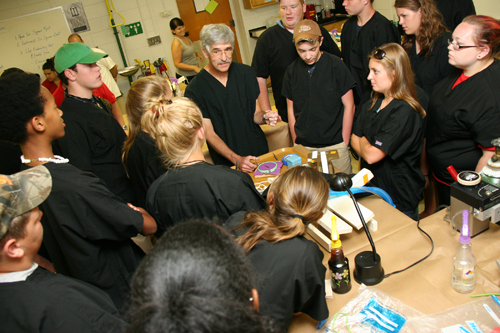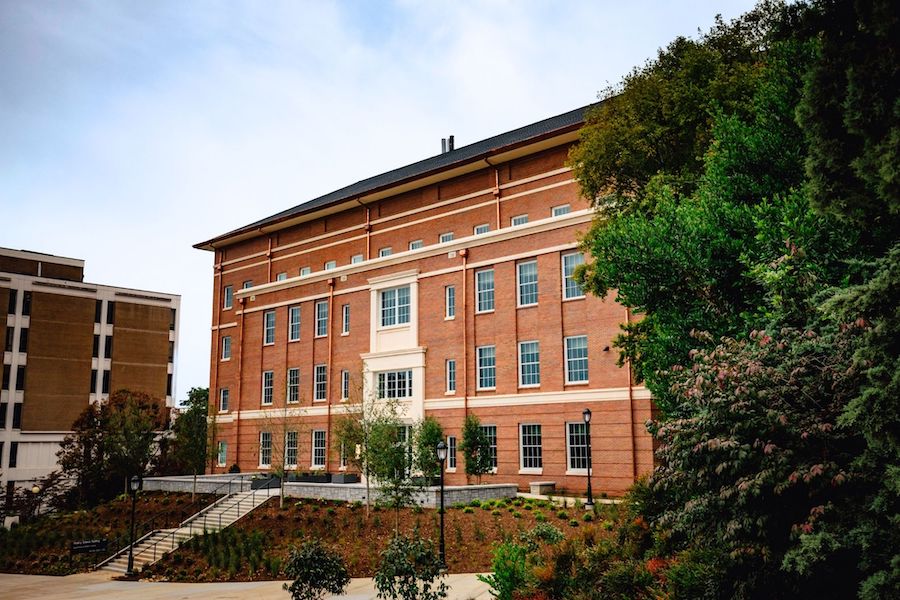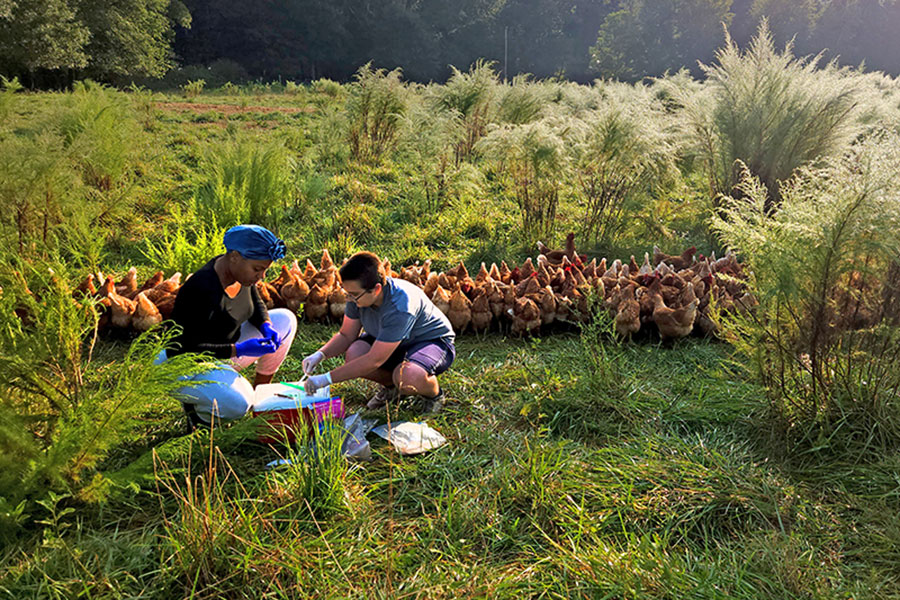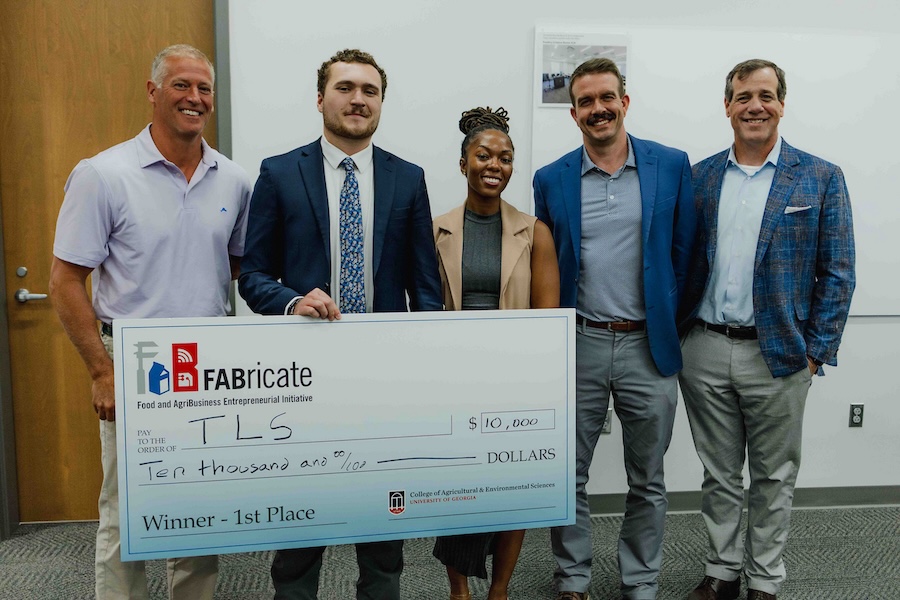The chicken was out cold when Brooke Chrisley tied her first surgeon’s knot. Her fellow students occasionally gently pinched the bird’s toe to make sure it was still anesthetized.
Chrisley, an East Jackson High School junior, was one of 30 high school students who attended Avian Adventures, a three-day bird science camp hosted every June by the poultry science department at the University of Georgia College of Agricultural and Environmental Sciences.
The high schoolers came from as far away as Point Pleasant, WV, and as close as Athens, Ga. They learned about chicken anatomy, general microbiology, hatching, suturing and bird watching techniques. They also got to experience northeast Georgia by kayaking the Broad River.
“My favorite part of the program was dissecting the layer hen,” Chrisley said. “That was pretty cool.”
Discovering poultry science
Starting with nine students in 2004, the program has outgrown its lab space.
“It’s the biggest crowd we’ve had,” said CAES poultry science department head Mike Lacy. “We actually had to put people on a waiting list.”
UGA poultry professor Mark Compton usually teaches undergraduates and graduates the intricacies of chicken anatomy or biomedical techniques. But for the camp, his classroom is filled with high school students.
“When you handle these birds, I want you to treat them with respect,” he told the students before they started suturing.
Shalandria Jackson, a senior from Decatur, took a break from practicing stitches on a purple sheet of latex. Her favorite part of the program was the microbiology, she said, seeing “the different types of bacteria from everyday things, especially the type and amount of bacteria that came off of my shoe.”
Before Avian Adventures, she hadn’t thought of poultry science as a career option. “Now it’s really interesting,” Jackson said. “Now I’m considering it.”
That’s the program’s point, Lacy said, to recruit students into poultry science and other agricultural fields. It also gives students the chance to practice science before they start college.
“We usually get two or three students per year from the effort,” Lacy said, “and it seems interest in poultry science increases in every class.”
These students not only add to UGA’s numbers, they also help Georgia’s poultry industry fill its job needs.
Job outlook
Georgia grows more chickens than any other state. In 2008, Georgia’s broilers and eggs had a combined off-the-farm value of $5.48 billion, the state’s top agricultural industry.
Avian Adventures is funded through the Harold Ford Foundation, which is part of the U.S. Poultry and Egg Association. The foundation finances recruitment programs at five other U.S. universities, because the poultry industry needs people.
The week Avian Adventures was held, UGA poultry science professor Brian Fairchild was on the phone twice with poultry companies.
“I got on the phone on Wednesday, and a guy from one poultry company was asking us if we still have any poultry graduates looking for a job,” he said. “I just got off the phone with another poultry company here in north Georgia. It’s the same thing.”
The need for poultry science graduates hasn’t let up, despite the economic downturn.
“When [a poultry company] loses a position, they hire back,” Fairchild said. “So we’ve been seeing steady hiring going on the entire time.”
Ivelisse Milanes graduated with a poultry science degree in May. She took time out of her new job to help out with Avian Adventures.
“It’s daunting and scary at the same time” to start training the next group of poultry scientists, she said, “but it’s awesome. If you do it right, you’re so proud of what can come of it, of what they can achieve.”
Major decisions
Chrisley knew she wanted to be a poultry scientist when she was five. “When everybody else had an imaginary friend, I had my Plymouth chicken,” she said.
She works with chickens almost every summer, and she’s fascinated by the research that can be accomplished through the birds.
Poultry science is also a passion for West Virginia junior Wes Davis. He tracked down the UGA program after attending a similar camp at North Carolina State University last year. He used Avian Adventures as a chance to check out the UGA campus.
Davis wants to research alternative housing systems for laying hens, something he has been interested in since California passed Proposition 2, also known as the Standards for Confining Farm Animals initiative.
“There’s a lot more research emphasis here,” Davis said, comparing the UGA program to other universities he’s visited.
Other students who attended said medical school or veterinary medicine is their ultimate college goal. And now they’ve had surgery experience.
“It’s so good to see young people who are interested and really care. They sort of shoot the stereotype of kids who aren’t engaged and don’t care about their future and the future of the world,” Lacy said. “All of these kids you can just tell are going to be successful in whatever they do, whether they end up in agriculture or not.”














